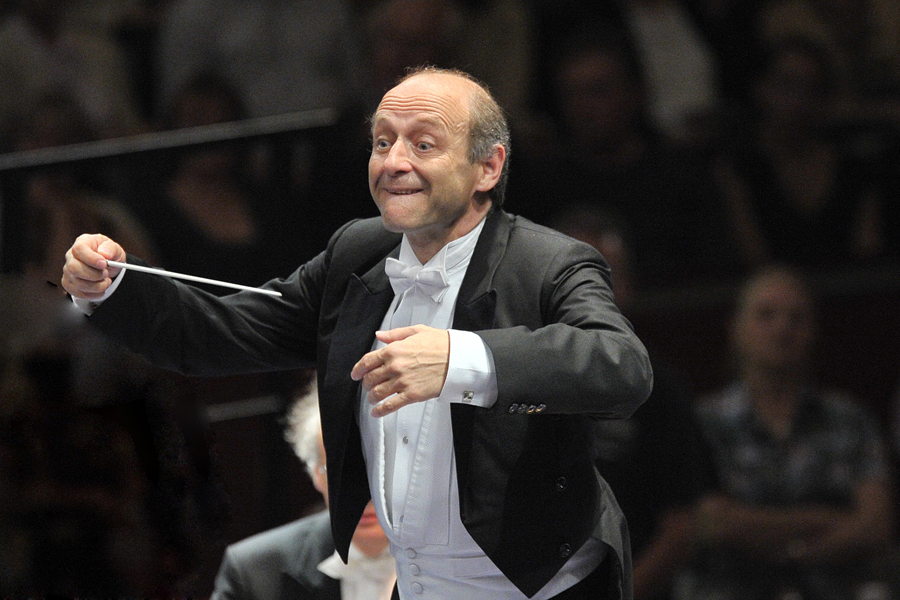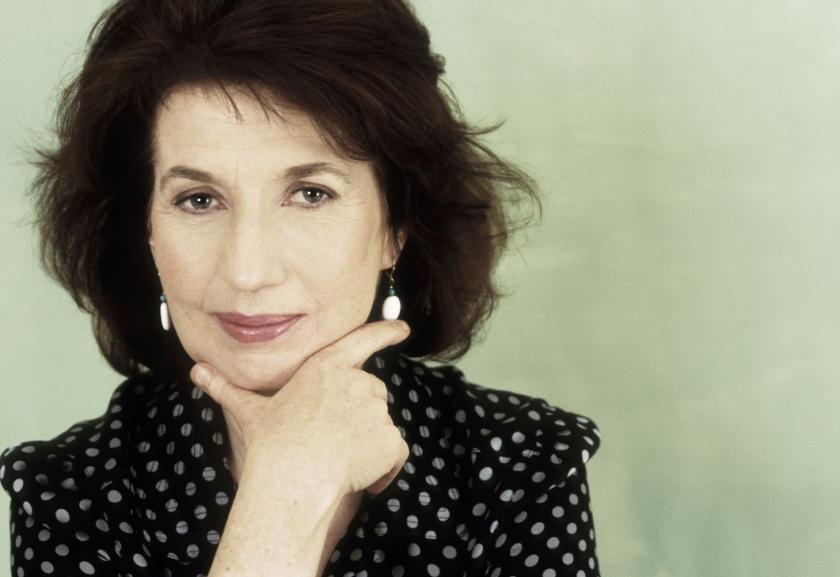Visiting orchestras and conductors often complain about agents’ insistence that they programme their main national dishes. The request is partly understandable: we all want to hear the Vienna Philharmonic in Mahler, the Czechs in Dvořák, the Hungarians in Bartók. On this occasion, it seemed like no bad thing to welcome back the Budapest Festival Orchestra and its febrile, masterly music director Iván Fischer in a work they’ve brought to London before, Bartók’s Concerto for Orchestra. But it was a surprise to some of us to find that this passionate, flexible team’s interpretation had stiffened slightly in its magnificent, idiosyncratic outlines, leaving the real wonders to the first half of the programme, above all in surely one of the finest concerto partnerships the Festival Hall has ever witnessed.
Make no mistake about it, this is still one of the world’s most individual orchestras. Its strings are lean and hungry, but in a good sense, flaming in climaxes and happy to follow their brilliant conductor’s very Hungarian instinct for forward movement. The brass is full, warm and capped by brilliant trumpets. Each of the principal woodwinds has a distinct personality, with Gabriella Pivon’s mobile flute complemented by the subtle oboe of Kai Frömbgen – one of the world’s great players, now among the orchestra’s few non-Magyars – and the incandescent first clarinetist Ákos Ács.
The wind team gave a dizzying lead to the string of delicious miniatures, potential encores all, that make up Dohnányi’s Symphonic Minutes. Skirling showpieces alternate with a faintly Hungarian-inflected soul, though there’s no need to make Dohnányi meekly shrink between the two stools of Liszt and Bartók, as a sketchy note did and the performance palpably did not. Profound, no, and profundity wasn’t necessary at the start, but the personality both of the composer and of the individual players set smiles on the listeners’ faces which rarely faded.

The sheer excitement of Bartók's frenetic finale didn't whack as hard as it can
For once, Beethoven’s reluctance to leave the scene at the end of a work could have gone on forever with all the delectable changes rung on the finale’s humorous theme. Cause for a standing ovation indeed. If that was less the case with the Concerto for Orchestra, it was only because something of the heart and soul Fischer (pictured above by Chris Christodoulou) and the BFO usually wear on their sleeve seemed to play second fiddle to masterly tempo-swings and detailed articulation. There was still wry fun in the woodwind couples, later trios and quartets, placed under the witty microscope in the second movement; in the “Interrupted Intermezzo”, Bartók’s raucous send-up of the “Hitler tune” already parodied in Shostakovich’s Leningrad Symphony switched adroitly to sheer withdrawn pathos despite the tam-tam player’s instrument crashing to the ground. Lucky he didn’t need it for the finale which followed, since Fischer has always run the piece with hardly a pause between movements.
Yet there was something missing of the homesick grief which punctuates Bartók's Introduction and returns in hordes of tearful wind and tearing poignancy in the Elegia, despite a wonderful set-up from the eight double basses centre-back. And though the articulation of the frenetic finale was impeccable, its sheer excitement didn’t whack as hard as it can. Even so, the usual Fischer encores were well deserved: Brahms’s third Hungarian Dance brought back the “games of the couples” with Frömbgen leading, and Ács kicked off the seventh with a real Magyar-folk inflection. Oh, and I’ve been asked by the Southbank Centre to mention that this was part of the Shell Classic International season, so there it is – but that surely entitles me to point out the obvious, that Shell's ambiguous environmental record hardly makes it the most unblemished choice of sponsor.
- Imogen Cooper remembers Sir Colin Davis in theartsdesk's collection of tributes to the late conductor
- Further UK dates featuring this partnership in Basingstoke, Manchester and Canterbury listed on Imogen Cooper's website
- Read David Nice's blog, I'll Think of Something Later














Add comment